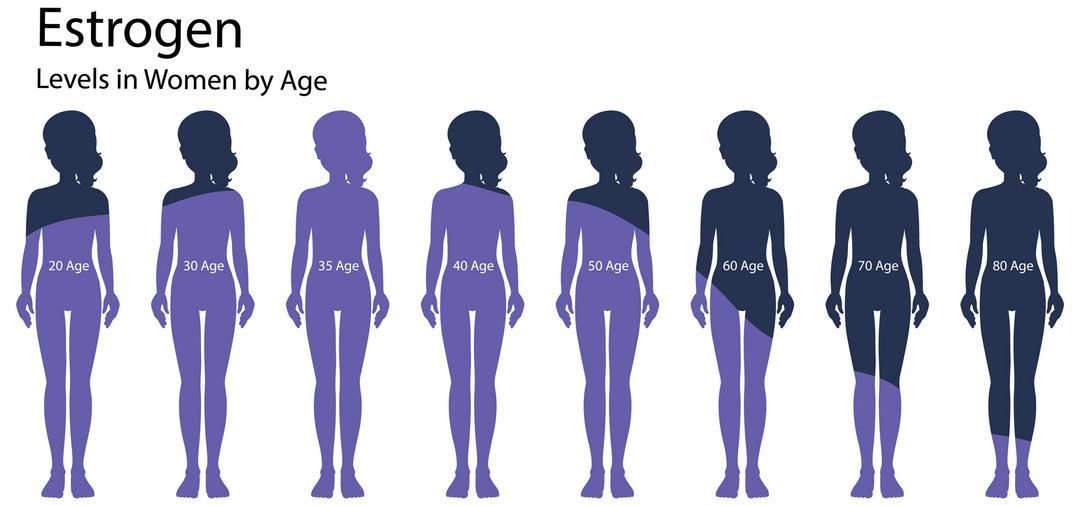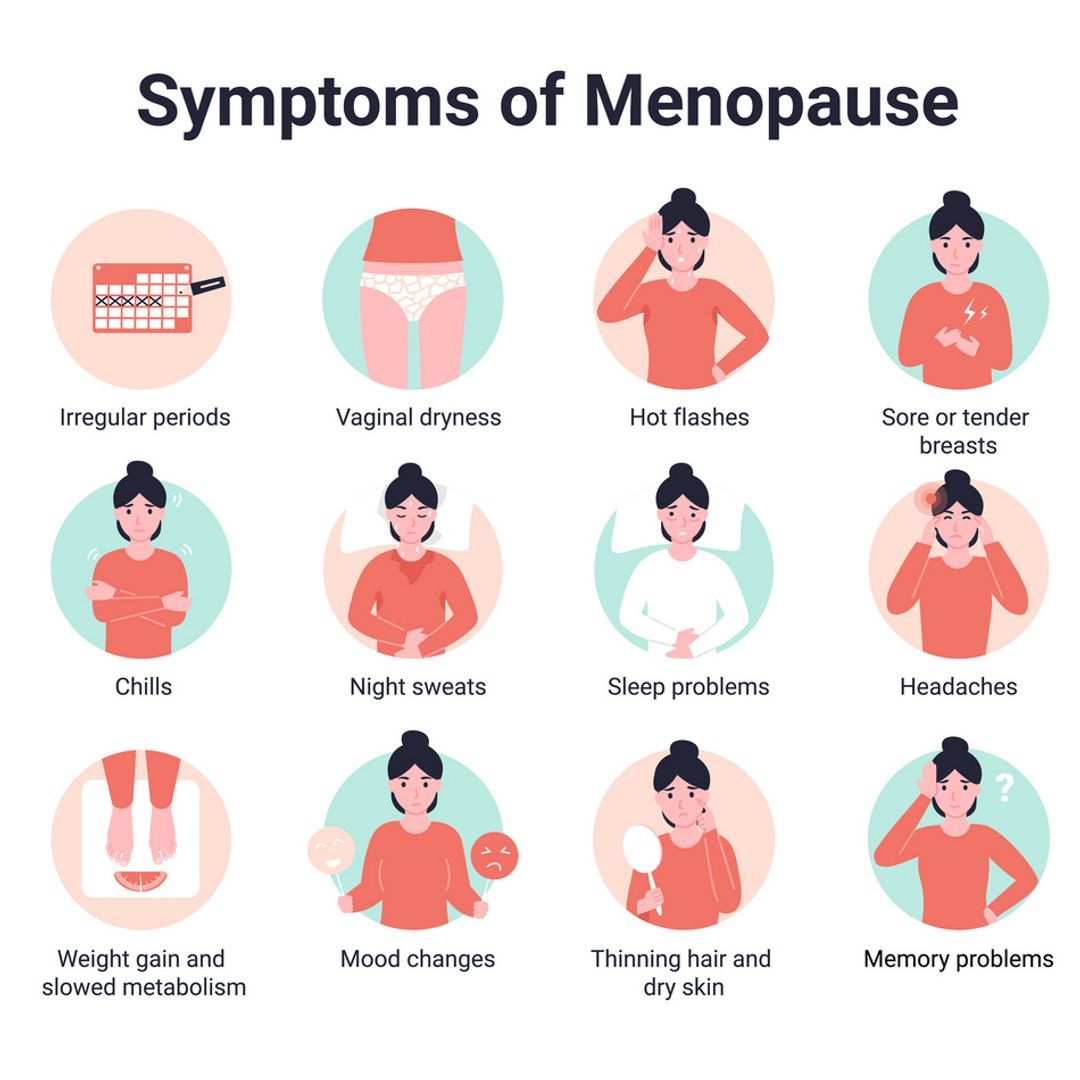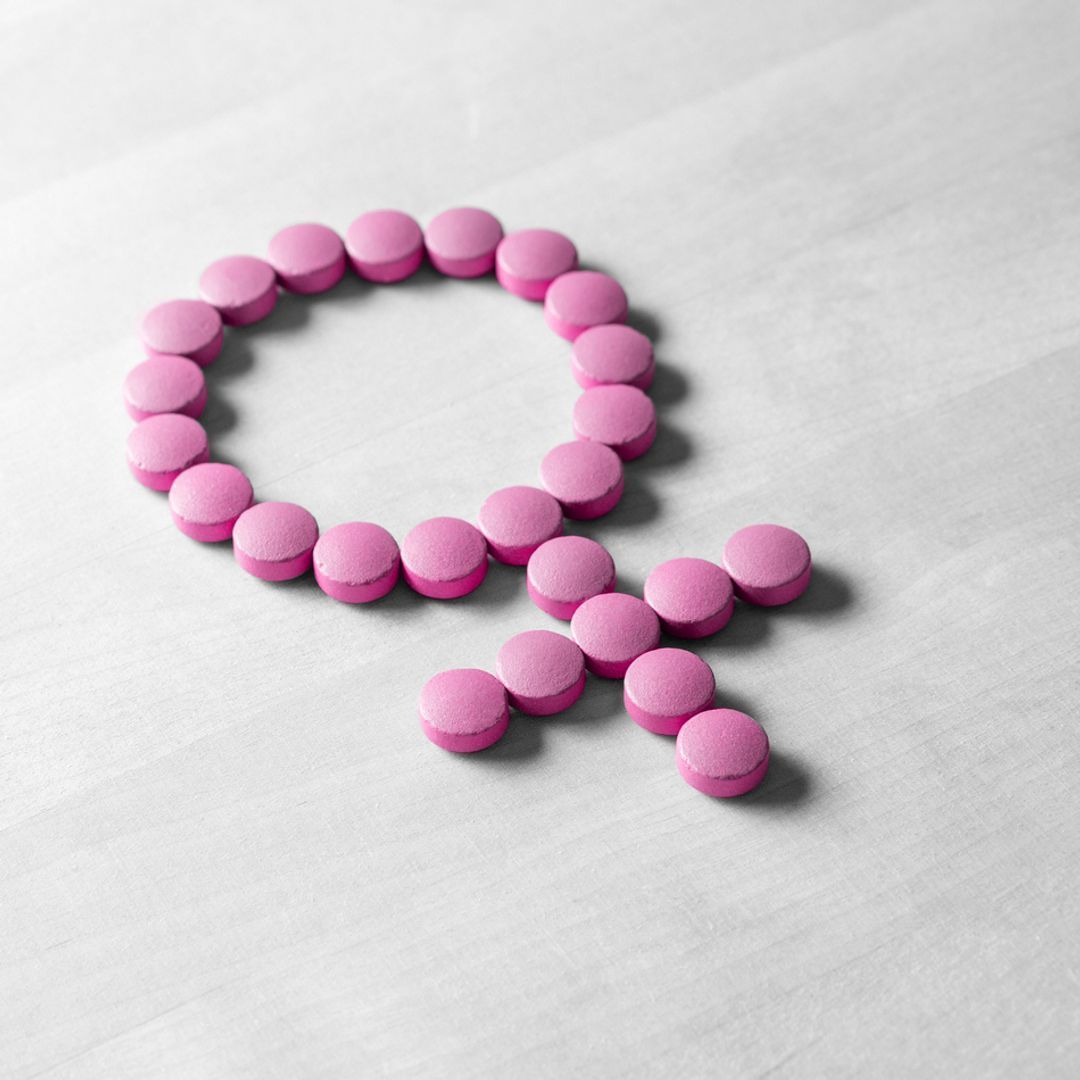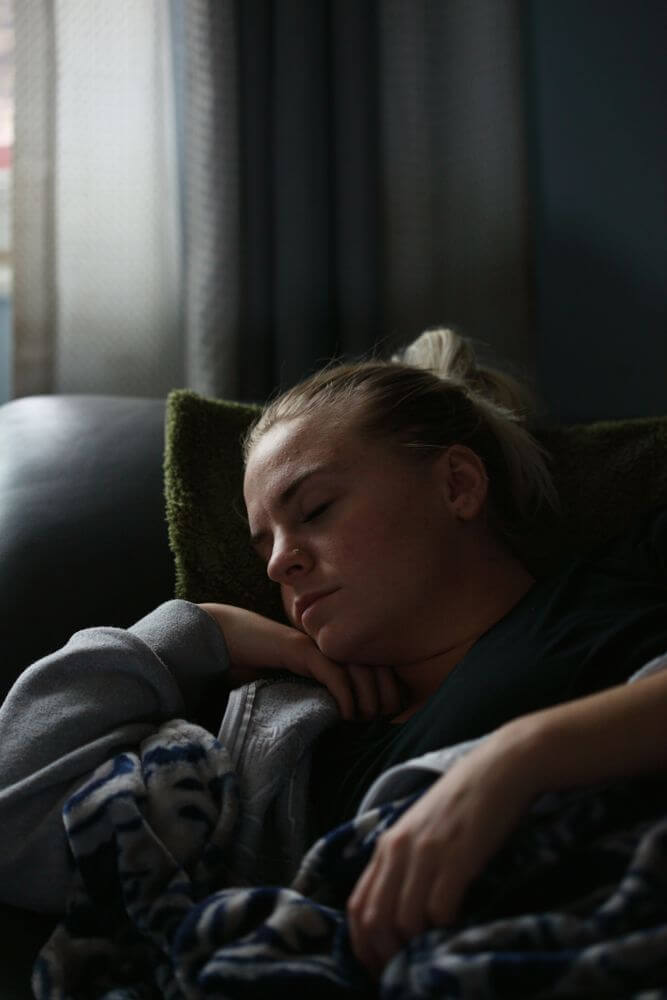A Complete Guide to Menopause Symptoms

Menopause is the term used to describe a period in a woman’s life when she stops having periods. If a woman has gone 12 months without having a period, she’s usually considered to have entered menopause. The onset of menopause marks the end of a woman’s reproductive years, as at this point, she is no longer able to conceive children.
Key points
- Menopause is the period of life after a woman stops having menstrual cycles. A woman is considered to have gone through menopause when she hasn’t had a period in over 12 months.
- Women who are approaching menopause or have already gone through it will usually experience some menopause symptoms, which can last for several years. About 10% of women will experience these symptoms for over a decade.
- The most common menopause symptoms include irregular periods, hot flashes, night sweats, mood changes, vaginal dryness, diminished libido, weight gain, sleep issues, etc.
- If you experience severe symptoms, you should speak to your doctor about treatment options. Some symptoms can be managed with hormone replacement therapy and other medications, while others can be alleviated by making simple lifestyle changes.
What is Menopause?
Menopause is the term used to describe a period in a woman’s life when she stops having periods. If a woman has gone 12 months without having a period, she’s usually considered to have entered menopause. The onset of menopause marks the end of a woman’s reproductive years, as at this point, she is no longer able to conceive children.
Menopause occurs because of changes in the levels of reproductive hormones, namely oestrogen and progesterone, in a woman’s body. However, women who undergo a surgical procedure during which their uterus or ovaries are removed or experience severe damage to their ovaries due to other reasons, such as chemotherapy, will experience premature menopause.
Many women experience unpleasant symptoms before and during the onset of menopause. These symptoms vary in severity, but they are usually temporary and go away on their own in a few months or years.
When Do Menopause Symptoms start?
The age during which women start experiencing symptoms and enter menopause varies widely, but generally, this is expected to happen between the ages of 45 and 60. However, as mentioned above, menopause can occur earlier due to factors like surgery.

Menopause Timeline
When menopause occurs naturally, a woman usually goes through three stages of this process:
Perimenopause
Perimenopause tends to last around 7 years, but it can be as long as 14 years before a woman enters menopause. This period is characterised by a decreased production of oestrogen in the ovaries. A woman will usually experience a significant drop in the levels of oestrogen a year or two before menopause sets it. Some people start experiencing symptoms of menopause during this period even though they still get periods and can get pregnant.
Menopause
Menopause officially starts when a woman hasn’t had a period for 12 months. This means that the woman’s ovaries are no longer releasing eggs and only producing a small amount of oestrogen. Women who go through menopause are no longer able to get pregnant.
Postmenopause
Postmenopause describes the remainder of a woman’s life after she goes through menopause. Most women see their menopause symptoms gradually subside during this period, but some people continue experiencing them for 10+ years after menopause. Since postmenopausal women have a lower amount of oestrogen in their bodies, they are more prone to health conditions like osteoporosis and heart disease.
Common Menopause Symptoms

If you’re getting into your 40s and starting to experience some changes in your body, you may be wondering whether these are symptoms of menopause or just unrelated occurrences. Here are all of the signs that you are approaching menopause:
Changes in Your Period
This is the main symptom of menopause that virtually all women will experience, but the changes vary among individuals. For instance, your cycle may become irregular, and your periods may become shorter or longer, heavier or lighter. While most of these changes are normal, it’s important to discuss them with your OBGYN and contact your doctor if you feel that there’s something wrong with your cycle.
Hot Flashes
This is another incredibly common symptom of menopause which can begin before it occurs and last for many years after. During a hot flash, a woman will suddenly feel heat in the upper part of her body, and the skin on her face, chest, neck, arms, and back may become red. A hot flash can last anywhere from less than a minute to over 10 minutes, and women will experience hot flashes anywhere from several times an hour to several times a week. You can also find yourself shivering or sweating after hot flashes. Some women also experience night sweats.
Incontinence
Another unpleasant side effect of menopause is loss of bladder control. This can manifest in frequent and sudden urination urges or urine leakage that occurs when a woman sneezes, exercises, coughs or laughs.
Sleep Problems
Menopause can also affect sleep. A lot of women in their 40s and 50s report having trouble falling asleep or staying asleep and report waking up too early.
Changes in Vaginal Health and Sex Drive
Women who enter postmenopause often report experiencing vaginal dryness, which can cause significant discomfort during sex. This can be remedied with the use of lubricants. Many women also notice a change in their sex drive. Some women experience a decrease in sex drive, while others report feeling more interested in having sex since they no longer need to worry about getting pregnant.
Irritability and Depression
A lot of women experience changes in their mood around the time of menopause. To date, scientists haven’t been able to determine a clear reason for why this happens. Mood changes could be brought about by changes in hormone levels, but they can also be associated with life changes and challenges that occur in a woman’s life during this period of time. In addition to irritability and depression, many women experience mood swings, anxiety, and low self-esteem. If you find yourself struggling with these issues, it’s a good idea to speak to your primary care doctor or a mental health specialist.
Body Changes
Unfortunately, many women who go through menopause find that they can no longer maintain the same body composition as they had before. For instance, many females gain weight, build up fat around the waist, lose muscle, and notice their skin becoming thinner. Additionally, some people experience memory issues, muscle and joint pain, reduced mobility, sore breasts, hair loss, heart palpitations, skin dryness, headaches, recurrent UTIs, etc.
Excessive Hair Growth on the Body
Some postmenopausal women also report experiencing abnormal hair growth on their chest, face, neck, and back.
How is Menopause Diagnosed?
If you believe that you may be experiencing symptoms of menopause, you should share this information with your doctor. You should also record information about when your periods happen, how long they last and note any changes in them and provide that information to your doctor. If your physician suspects that you may be going through menopause, they may test your blood for the following hormones:
- Estradiol
- FSH (Follicle-stimulating hormone)
- Thyroid hormones
GlycanAge Biological Age Test
Whether you believe you have entered menopause or not, you probably want to know how well your body is doing for your age. After all, every one of us wants to feel and look younger than our real age. Well, GlycanAge can help with this! As a team of scientists, we have developed a simple at-home fingerprick test that analyses the condition of your immune system and inflammation levels in your body. Based on this information, we can estimate your biological age compared to your actual chronological age. The results of a GlycanAge test will allow you to assess how healthy your body is and whether you need to make any changes. You can even purchase a two-test kit at a discount if you’re planning to make health or lifestyle changes and want to see how they will affect your true biological age.
How to Reduce the Symptoms of Menopause?
Hormone Replacement Therapy
The most common treatment for menopause symptoms is hormone replacement therapy, which replenishes hormones your body no longer produces in adequate amounts. Hormone replacement therapy is not required for all women who are entering menopause, but it can be an effective option for managing and preventing hot flashes, osteoporosis, vaginal dryness, and night sweats.

Other Medications
There’s also a variety of other medications that can be used to manage menopause symptoms:
- Oestrogen creams, suppositories, and gels, as well as non-hormonal lubricants, can be used to combat vaginal dryness.
- Sleeping pills can help women who have trouble sleeping
- Vitamin D supplements and medications like denosumab, calcitonin, and teriparatide can help strengthen bones and prevent osteoporosis
- Paroxetine, gabapentin, clonidine, and selective oestrogen receptor modulators can help combat hot flashes.
- Minoxidil and similar treatments can help prevent or minimise hair loss.
- Selective serotonin reuptake inhibitors can be an effective option for treating anxiety, depression, and other mental health issues associated with menopause.
Other Things You Can Do to Minimise or Prevent Menopause Symptoms
If you don’t feel like your symptoms are severe enough to require treatment with medication or you simply want to try to manage them naturally, there are a lot of lifestyle changes you can make.
Dress Comfortably and Stay Cool
Hot flashes can bring discomfort, but they can be managed by dressing in loose clothing that suits the weather. You can also dress in layers so you can always adjust your outfit if you feel too hot or cold. You can also use a small fan to keep you cool. Another tip is to ensure that the bedroom where you sleep is cool and avoid using blankets that are too heavy. This will help reduce the risk of night sweats. If you experience night sweats frequently, put a waterproof sheet underneath your regular bedding to protect your mattress.
Reduce Calorie Intake and Exercise More
If you notice that you’re gaining weight, losing muscle mass, and not feeling as energetic as you used to, we recommend reducing your daily calorie intake and introducing a daily exercise routine into your life. Just 20 to 30 minutes of active exercise per day can help you become more active, get better sleep, and improve your mood.
Take Supplements
Dietary supplements containing magnesium, calcium, and vitamin D can help prevent osteoporosis, increase your energy levels, and help you get better sleep. However, you should talk to your doctor before starting to take any supplements, especially if you already take prescription medications.
Incorporate Relaxation Techniques Into Your Life
Things like breathing exercises, yoga, meditation, and other mindfulness and relaxation techniques can help stabilise your mood and improve the quality of your life overall.

Quit Bad Habits
Smoking, exposure to secondhand smoke, and alcohol consumption can make menopause symptoms like night sweats worse. Thus, you should do your best to quit these habits and lead a healthy lifestyle.
Take Extra Care of Your Skin
Since your skin is likely to become drier, you should use lotions and creams every day to keep it moisturised and avoid taking lengthy hot showers and baths, which can dry out your skin even more.
Be Open About Your Feelings
Menopause is one of the most significant transitions a woman will go through in her life, so you should be open and honest about your feelings and struggles with your family and friends and seek support from them if necessary. You can also talk to a therapist who will help you go through this transition more smoothly.
Final Thoughts
Menopause is a significant transition period in any woman’s life. But this doesn’t mean that your life is ending. In fact, for many women, the postmenopausal period brings new opportunities to enjoy life, relationships, and sex. While most women will experience some symptoms of menopause, they are usually mild or manageable. But if you feel that your periods are unusual or severe enough to adversely affect your life, you should speak with your physician.
FAQs
What are the 1st signs of menopause?
The earliest signs of menopause include changes in your period, hot flashes, difficulty sleeping, lowered libido, vaginal dryness, mood changes, and night sweats.
What is the normal age for menopause?
Most women begin the menopausal transition between the ages of 45 and 55. In the UK and US, the average menopause age is 51. Around half of all women will experience menopause by this age.
Is there a test for menopause?
Unlike pregnancy, there’s no simple test for menopause. Your doctor will usually diagnose perimenopause based on the duration and frequency of your periods (or the amount of time that has passed since your last period), your age, symptoms, and different hormone analysis. Generally, women who have gone 12 months without a period are considered to have gone through menopause.

.png?alt=media&token=2a0a94f2-4ed8-4ec7-9096-3af0d933fa04)

